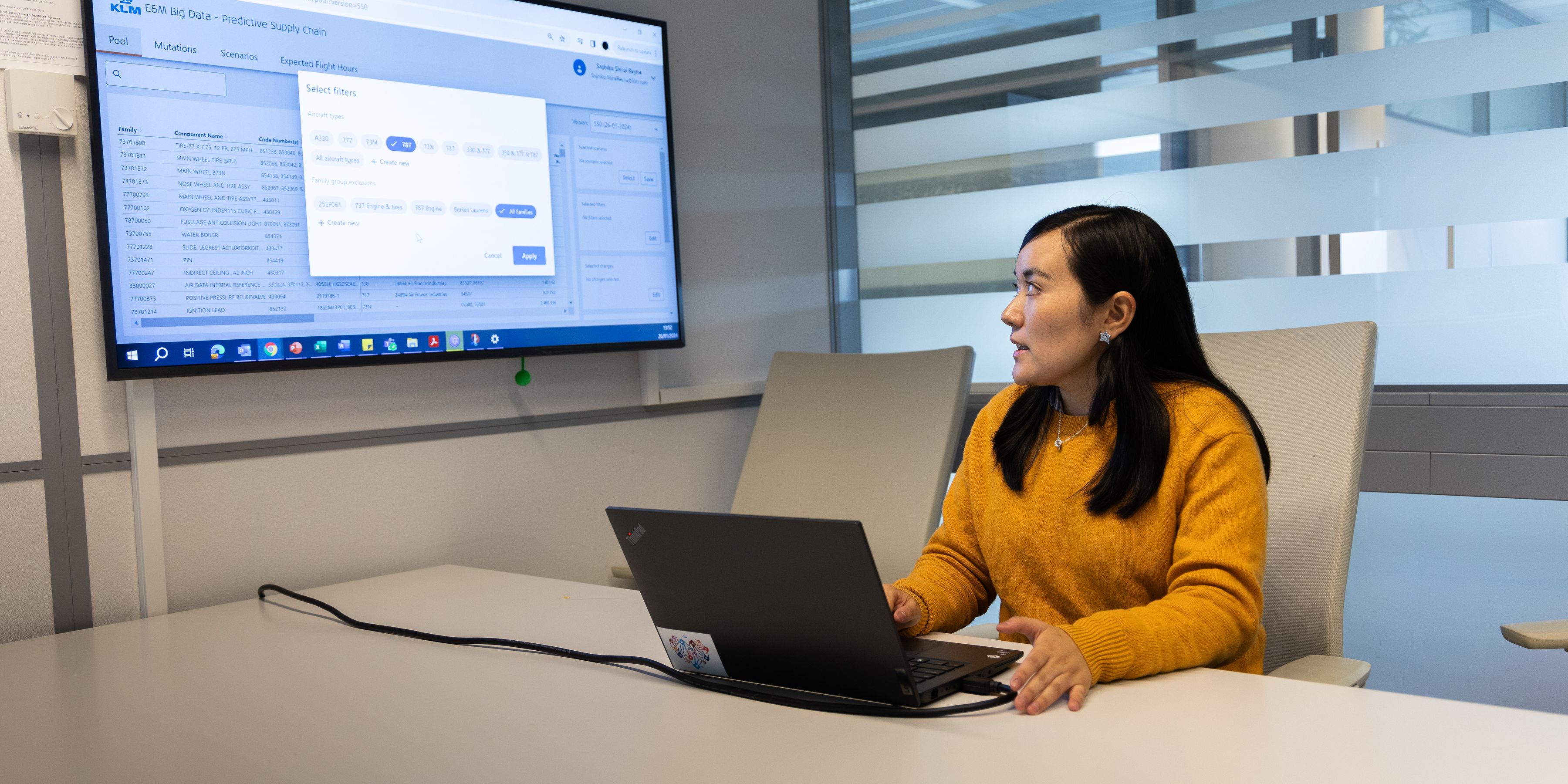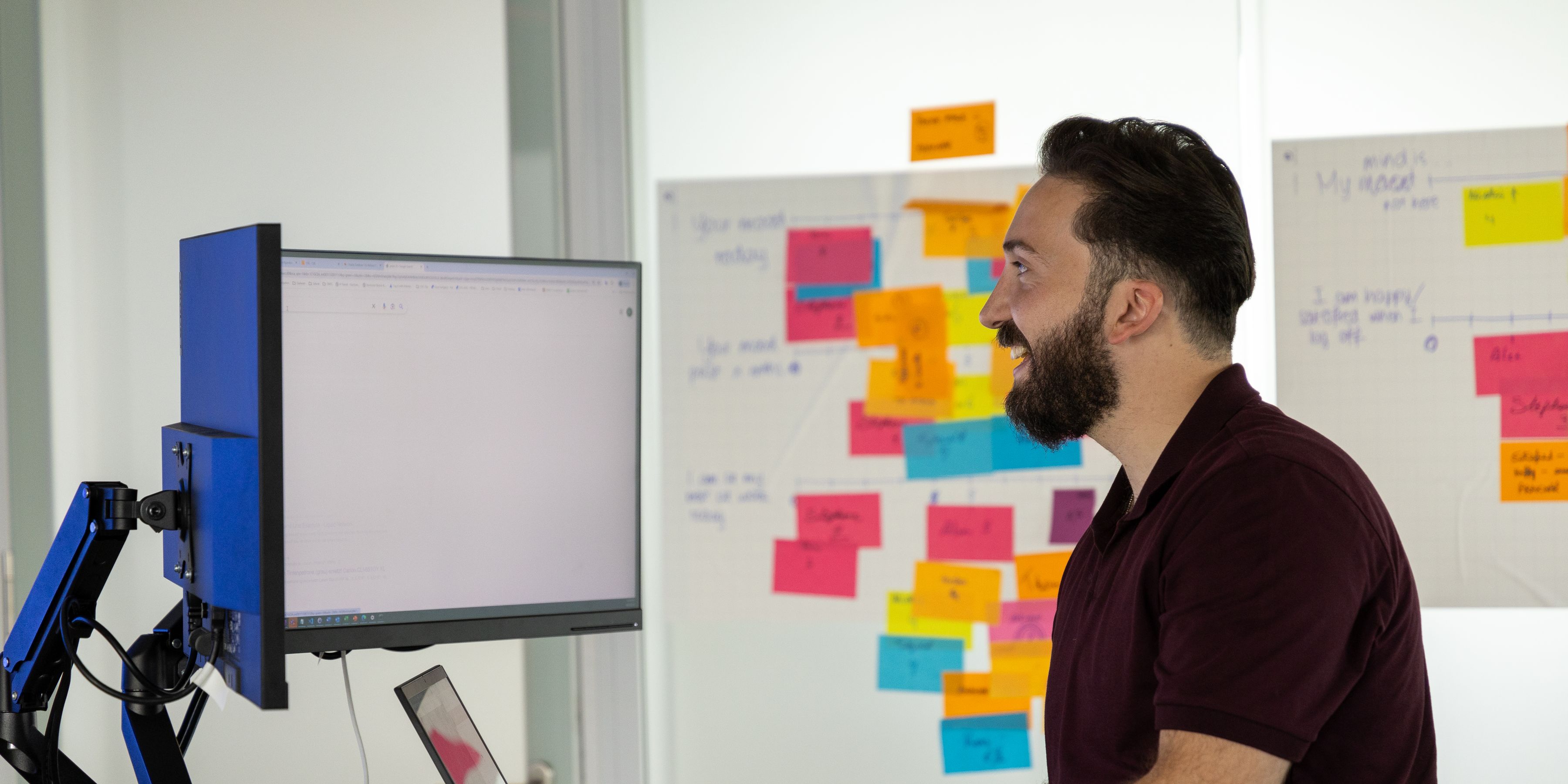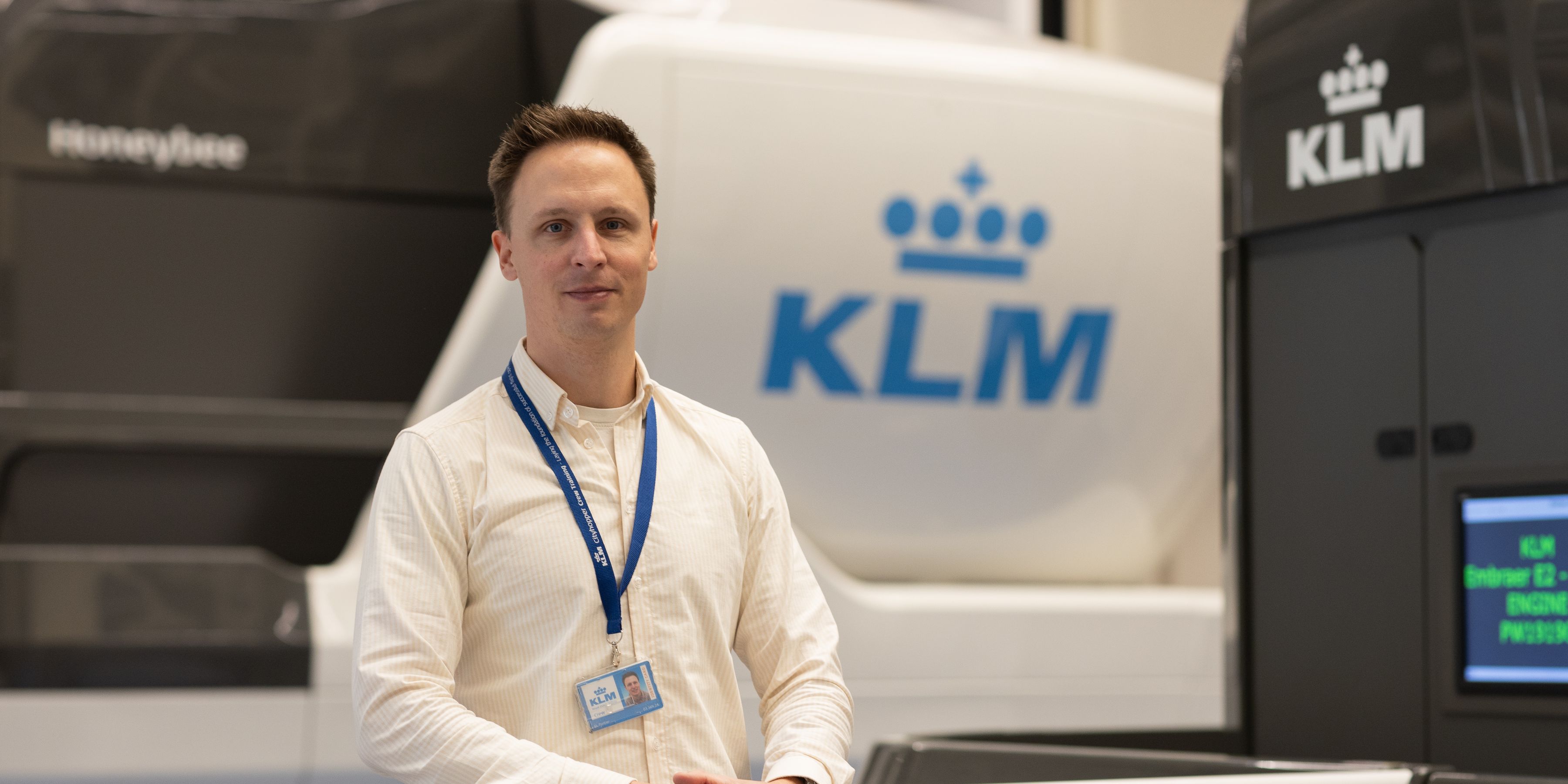Smart flight school thanks to PilotGPT
Studying for the cockpit: this is how we make it smarter and simpler
When pilots are trained to fly new aircraft types, they must first navigate through piles of bulky manuals filled with technical details. While they are expected to eventually master this material, during training, many find themselves overwhelmed by the sheer volume of information. Surely, there had to be a better way, thought senior flight instructor Ernst. That’s why, a few months ago, he approached Bradley’s BlueAI team, seeking a solution.
To pave the way to the cockpit, Ernst came up with the idea of developing an AI tool. One that can access all manuals so pilots can find information quickly. Bradley: ‘That way they can prepare for their exams more efficiently. We hope that this will also contribute to passing the exams.'
'In the development phase, we first went through all our options. The regular variant of ChatGPT immediately fell off because the manuals contain confidential information - we can't just release that onto the internet. Option two was our internal ChatGPT, but that lacked specific knowledge of the manuals. So, we decided to develop something new: PilotGPT.'
Learning to predict
Bradley started at KLM six years ago as a data scientist. 'I first fulfilled a role in Marketing where I worked on a model that predicts travel profiles, so that we could approach customer groups with specific offers. For example, if someone often books city trips, they will probably be more interested in tickets to Paris than to the Caribbean. 'After two and a half years, I switched to my current team: Operations. Here, I also made prediction models, but with a focus on internal processes.'
Meanwhile, Bradley is lead data scientist. He manages a group of five data scientists, but also works closely with five machine learning engineers and three product owners. 'I am responsible for the recruitment, onboarding and development of my team. I also support complicated technical choices. For instance, with PilotGPT we initially focused only on Embraer aircraft, but the same request soon followed for Airbus. It is then up to me to decide how to approach that: do we make two separate applications, or do we incorporate the manuals of both aircraft in the backend?'
Ultimate collaboration
Currently, PilotGPT is in the testing phase. At the same time, the team is already working on its next feature: sample questions and answers. This will allow pilots to test themselves more effectively before their exams.
Of course, it's not that pilots have to study less hard. 'Flying is still human work. But a tool like this could provide support in the cockpit in the future. However just as with ChatGPT, it's important to assess the context of the answer yourself. That's why our tool always mentions the page number of the manual.Bradley, lead data scientist
Leader in AI
Besides this project, Bradley and his team are also working on all kinds of other AI models. 'For example, we developed one that predicts crowding at Schiphol Airport and, among other things, estimates how many gate agents we need. We've also made a model that predicts how many meals are needed on board each flight which has resulted in saving around 100,000 kilos of food per year.'

Why exactly should you do this work at KLM? 'It's very pragmatic: you don't only do research; you also immediately see the impact of your work which is very rewarding. We're a big club of data scientists and the level is high - that means we learn a lot from each other. Moreover, here you don't just do analyses all day, your models are actually used in operations 24/7. Our machine learning is also quite mature, which makes our work very challenging. It's fair to say that KLM is way ahead in the aviation industry when it comes to AI.'
"Go to techdata.klm.com for more stories about IT at KLM."


